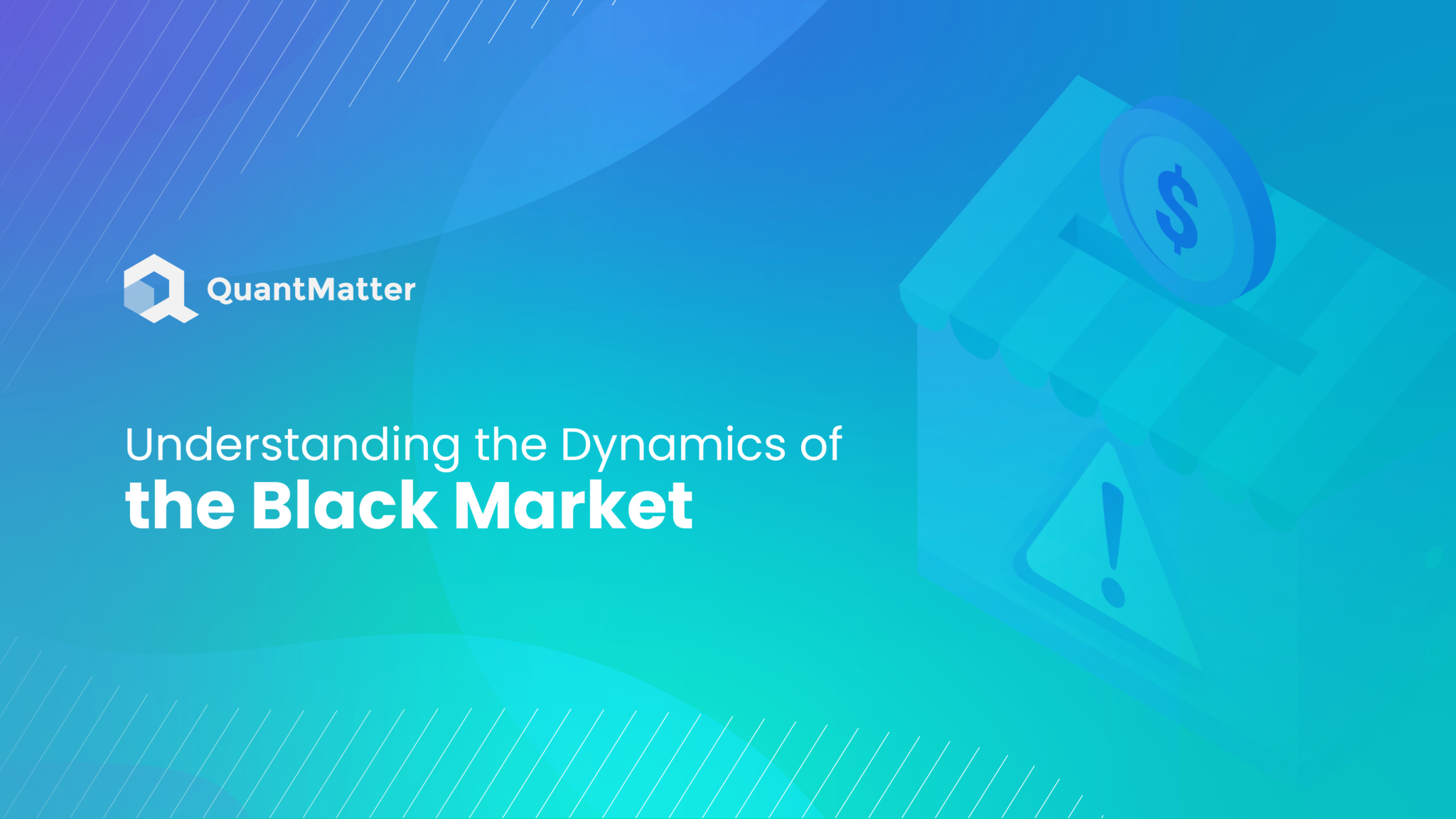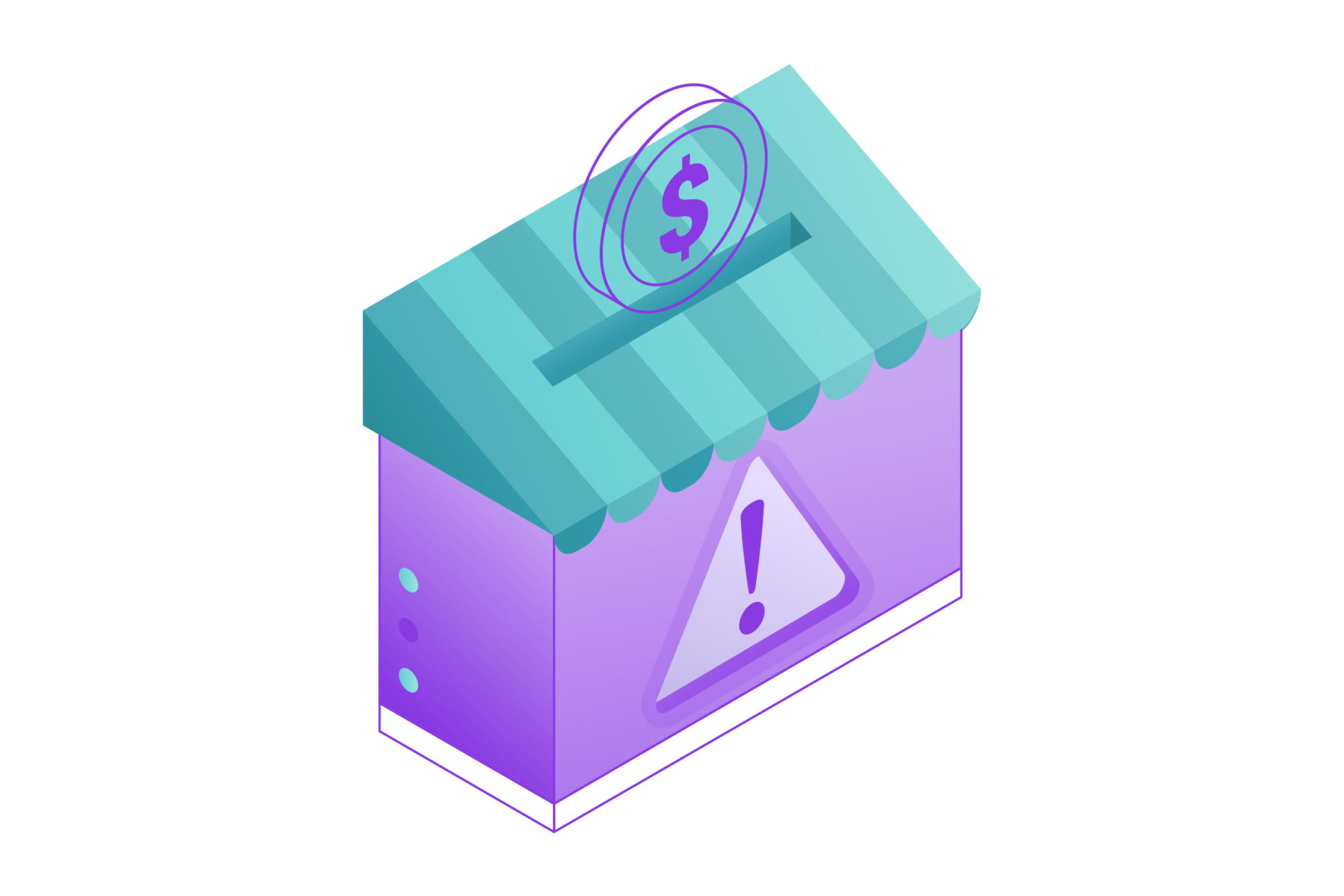
In global trade, the black market operates as an unreachable shadow, operating where legal and regulatory frameworks don’t apply. Undoubtedly, the black market is a very complex and long lasting phenomenon that negatively affects society and the economic system. The existence of such informal markets frequently points to the systemic problems of poverty, inequality, and governance failures, and those are the factors that allow illegal activities to flourish.
People may be forced to use the underground market in order to survive as passing opportunities are limited or due to obstacles put to them by some regulations that make it impossible to participate in the formal economy. This is also the case, the corruption and weak governance systems can support and legitimize the black market by weakening law enforcement and creating illicit networks that facilitate the illicit trade. Undoubtedly, these underground marketplaces prosper thanks to the trade of illegal items in there and stay invisible through encrypted messaging and hidden networks. Identifying its specificities is of great importance for policymakers, economists, and civilians, as it influences socio-economic factors.
Black Market Origins and Evolution

The black market, interestingly enough, most certainly emerged from the annals of history, deepening the understanding of the interplay of the socioeconomic factors that have been involved in the sustenance of the underground trade networks. From the earliest time when the formal economy and a body of law were developed, so did a dark world of malpractice and deception in commerce.
In times when the economies are in turmoil, when there is political upheaval, or regulations are smothering people with restrictions on livelihoods, individuals and communities have often turned to clandestine activities as a way of overcoming barriers and fighting for their existence. The black market draws people due to the promise that they can get products and services that are either outlawed, heavily regulated, or just not obtainable through legal avenues.
One of the most well-known chapters in the folklore of the contraband trade worldwide is the service period of Prohibition in the USA in the 1920s. The nationwide prohibition of alcohol, along with the ban on sales, production and distribution, created a favorable environment for the development of organized crime syndicates. Underground distilleries, speakeasies, and smuggling operations sprang up throughout the country, with the demand for alcohol satiating the urgent desire and the lucrative motives of the criminal elements.
The unintended consequences of prohibition underscore a fundamental truth about black markets: they flourish in environments that have a gap between legal enforcement and social expectations, where the market pull exists even if there are laws that prohibit the activity, and where the profits are higher than the costs of engaging in illegal activities.
And finally, the arrival of the digital era has led to new markets, especially for underground businesses, where various things, including drugs, counterfeit goods, hacking services and illicit firearms, are sold on illegal online marketplaces. The Dark Web and cryptocurrencies that provide anonymity have made it stronger to combat illicit trade and created an immense incentive for law enforcement agencies and policymakers globally.
Therefore, if the origins of the black market are centuries old and embedded in the past, their evolution is a reminder of the ever-changing dynamics of commerce and governance on a global level. This will be the case, as long as there are gaps in regulations and people’s needs, and the illicit economy will survive finding new technologies and reacting to new social and political views and attitudes.
Black Market Scope and Scale

The black market covers an immensely vast territory and is also extremely diverse, as it includes different kinds of goods and services that are not regulated and taxed according to the law. The underground economy, which covers everything from illegal drugs and weapons to fake goods and human trafficking, spreads across continents and touches all strata of society.
With the black market, one of the biggest industries is the drug trade, which generates a lot of money—dollars in the billions annually. Drugs including cocaine, heroin, and methamphetamine are manufactured and smuggled worldwide, with criminal organizations having a tight grip on the control of the supply chain. The drug markets not only finance addictions and crime but also enforce violence and corruption in many parts of the globe.
Apart from drugs, the black market is also full of counterfeit goods. The list of falsified products goes far and wide, from luxury garments and gadgets all the way to pharmaceuticals, with their production and distribution breaking the law and being of inferior quality and danger. The increase in falsified goods not only destroys genuine businesses but also compromises the integrity of the safety and health of consumers.
Also Read: Market Making: Strategies and Techniques (August 2024)
The illegal arms trade is another profitable field of the black market, and it facilitates conflicts and violence in different parts of the planet due to the fact that it traffics weapons. Dealing in arms, ranging from small arms and ammunition to military-grade weaponry, illegal arms traders make money by supplying weapons to terrorist organizations, insurgencies and criminal syndicates.
Human trafficking, the organized intra- and inter-state smuggling and exploitation of men, women, and children for forced labor, sexual exploitation, and other forms of exploitation, represents a particularly repulsive component of the world’s black market. A threat-vulnerable person is taken into trafficking networks by deceptive promises of employment or winning life chances and subjected to physical and psychological abuse and exploitation.
In addition, with the rise of the digital age, the darkness of the black market has expanded, where stolen data and hacking services are sold over the internet, and with the exponential growth of dark web marketplaces. Cryptocurrencies like Bitcoin provide such anonymous transactions, which makes cracking down on illicit online activities even harder.
In general, the extent and size of the black market that continues to be a problem are the biggest proofs of the unbeatable nature of illegal trade and organized crime. Notwithstanding, joint endeavors between law enforcement agencies and policymakers, subterranean businesses persist in changing forms driven by profit motives and demand for illicit/regulated goods and services by consumers.
Challenges and Solutions of Black Market

The black market raises many issues, most of which are related to the illegal element and lack of oversight. Here are some key challenges and potential solutions:Here are some key challenges and potential solutions:
Challenges:
Illegal Activities
Even though the trade of illicit goods and services is taking place on the black market, the commodities include drugs, counterfeit products, and weapons, among others. Such activities serve both as a means (which can bring legal regulations and social norms to non-existence) and as a possible risk of making the public unsafe and unsound. An example of this is drug trafficking via the black market, which causes drug misuse and, thus, increases addiction and crime rates.
It also contributes to the wide dissemination of fake goods, which can be pharmaceutical products and consumer goods, among others, and hence endangers consumers directly by exposing them to the spread of dangerous substances if they use them or by offering them low quality products. The unlawful black market is difficult to trace as none of the activities are transparent, which allows the law enforcement agencies to get hold of the suspects, thus escalating the issue and developing crime networks.
Loss of Revenue
A huge shortfall in government revenue collection has become a significant challenge for the black market because transactions are outside the legal economy. The unrecorded trade of commodities and services deprives the government of income from taxes, preventing it from funding education, infrastructure development and social programs that protect the vulnerable in society.
This shortfall in revenue limitation does not only hamper governments from fulfilling their objectives in social life; it also leads to economic inequality and disparities. In addition to that, the shadow economy disrupts market balance by establishing unhealthy competition for the enterprises that are legally operating, and that are following the regulatory requirements and making tax payments.
Economic Distortion
The black market has a high potential to change economic dynamics by providing unfair competition, disrupting legitimate markets, and creating a corruption avenue. The gray market competitors can undercut prices but are not burdened by regulation, so they have a distinct edge over the law-abiding businesses. This competition is unjust for the legal organizations, alters market prices and thins the consumer’s confidence.
Proliferation of black market activities can bring disruptions to supply chains that might at times lead to shortages or surpluses of both goods and services in the formal economy. This disruption can lead to market inefficiencies, less productivity, and economic instability. In the end, economic growth and development become limited. In addition, the black market spreads corruption through bribery, extortion, and corruption, together with criminals and public officials. The temptations of fast earnings from anti-legal activities motivate those who are in positions of power to engage in fraudulent practices, leading to the erosion of trust and the undermining of the rule of law.
Consumer Risks
Consumers expose themselves to substantial risks when dealing with the black market, whereby they generally purchase unsafe or counterfeit products and have no legal recourse. The lack of supervision and control over the quality of the goods on the black market is a real threat that increases the possibility of consumers being exposed to hazardous substances or goods of low quality.
According to this instance, black market fake medications may be manufactured incorrectly, lacking the required ingredients or contaminated with harmful chemicals, thus posing a great danger to consumers who are unaware of the whole scenario. On the other hand, fake consumer products, like electronics, clothing, and cosmetics, may not meet safety standards; therefore, such products can be responsible for accidents or injuries caused. However, buyers who trade in the black market deprive themselves of basic consumer protections such as warranties, refunds, and recourse when there is an issue, putting them at the mercy of exploitation and fraud.
Solutions:
Enhanced Law Enforcement
To uproot the black market, law enforcement must be reinforced. This involves making use of resources to carry out the criminal investigation, get arrests, and conduct a court trial of persons involved in the illegal trade. The efficiency of enforcement depends on coordination between respective law enforcement bodies at the territorial, national and international levels with the aim of interrupting illicit supply chains and bringing down criminal networks.
Deploying technology and intelligence capabilities in the composition of the enforcement operation can boost the efficiency and effectiveness of security operations. Nevertheless, the enforcing authority must do so while observing human rights, the rule of law, and, at the same time, the public’s confidence and legitimacy. Besides, it is necessary to remedy corruption problems within law enforcement agencies in order to prevent and restrict the influence of criminal elements.
Regulatory Measures
It is necessary for us to take the approach of comprehensive regulatory measures in order to address the factors or causes of black market activities. It consists of creating laws and enforcing regulations that are directed at different industries or products that have a high likelihood of illicit trade, for example, drugs, fake goods and wildlife trafficking. Therefore, the regulation should also consider dealing with the socio-economic factors that make people take part in the black market, e.g., poverty, lack of access to formal employment, and inequality.
Furthermore, cooperation between government agencies, industry players, and civil society organizations brings competence to the regulatory frameworks to always be dynamic, adaptable, and responsive to the dynamism of challenges. Similarly, there is a need to tread the fine line between regulation and overregulation in order to avert unintended impacts like driving illicit activities further undercover or curbing legitimate economic activities. This is, then, the type of regulation that should be evidence-based, transparent, and subject to periodic evaluation to make sure that it is effective and optimal in ensuring that the black market does not thrive.
Also Read: Market Maker Options: Definition and How They Make Money
Public Awareness Campaigns
Educating the public about the associated risks of black market participation remains the key to eliminating demand for illegal goods and services. Public education programs focusing on the hazards of engaging in illicit activity, e.g., the adverse health effects of fake or contaminated products, the penalties and jail sentences, and the development of organized criminal networks, should be implemented.
There is an area where the campaigns should target vulnerable populations, such as youths, and marginalized communities through various means, like media, educational institutions and community outreaches. Not only this, but activities to encourage the ethical attitude of a consumer and the significance of legal and responsible businesses can also be useful to change social norms and attitudes toward the black market. Through knowledge and awareness, public campaigns can help bring about a reduction in demand by undercutting black market operations, so they play a very significant role in this matter.
International Cooperation
More international cooperation will be required for the transnational black market networks that work across the border to be successfully fought. This consists of a partnership between law enforcement agencies and governments, sharing intelligence, resources, and good practices, so as to cut the links in supply chains and punish the perpetrators. Another benefit of multilateral collaboration is supporting joint operations and extradition of perpetrators, which helps prevent suspects from evading arrest by exploiting jurisdictional loopholes.
Interacting with international organizations such as the United Nations and Interpol is the right choice to have an arena for coordinating work, setting a common standard, and contributing to collaboration on a global level. Nevertheless, such issues as right-wing parties in government, state sovereignty and resource insufficiency prevent a high-level of cooperation among countries. Consequently, such diplomatic action and multilateral treaties are needed to overcome these difficulties and to promote good neighborliness and mutual understanding amongst the countries involved. The international community’s collective strength is solidified by the unity that borders offer. Hence, the community can be able to overcome the black market by fighting across borders and disrupting its operations on a global scale.
Conclusion
Combating the black market requires consideration of its complicated motives and consequences in order to build an adaptive mitigation strategy. While the solution lies in the enforcement measures that do not only mean the elimination of a drug market from the community but also ‘equalizing’ socioeconomic inequality, access to legal markets is expected to be less effective. Alternatively, the holistic approach that links the enforcement of targeted measures to the promotion of comprehensive interventions that include, among others, the elimination of poverty, universal education and health care, and stronger governance is essential. In addition, encouraging collaboration amongst governments, civil society and the private sector strengthens the strategy of curtailing illicit trade by deploying multifaceted expertise and resources.
A nuanced assessment of the operations of the black market is of great importance for policymakers to develop policy solutions cognizant of what drives the black market and tailored to the impact of the black market. With their focus on systemic aspects and on building inclusive economic growth, societies can reduce participation in illicit activities and create room for individuals to also participate effectively in formal economies. Nevertheless, durable change calls for continued commitment and participation by various stakeholders and sectors that would focus on the underlying factors of the black market and sustainable development as the solution.
Disclaimer: The information provided by Quant Matter in this article is intended for general informational purposes and does not reflect the company’s opinion. It is not intended as investment advice or a recommendation. Readers are strongly advised to conduct their own thorough research and consult with a qualified financial advisor before making any financial decisions.

I craft stories that make complex ideas clear. I simplify the blend of data science, machine learning, and crypto trading, showcasing how advanced tech and quantitative models analyze data for informed trading choices. Join me in exploring the realm of quantitative trading, where my narratives make intricate concepts easy to grasp.
- Alifia Berizkyhttps://quantmatter.com/author/alifia-berizky/
- Alifia Berizkyhttps://quantmatter.com/author/alifia-berizky/
- Alifia Berizkyhttps://quantmatter.com/author/alifia-berizky/
- Alifia Berizkyhttps://quantmatter.com/author/alifia-berizky/
